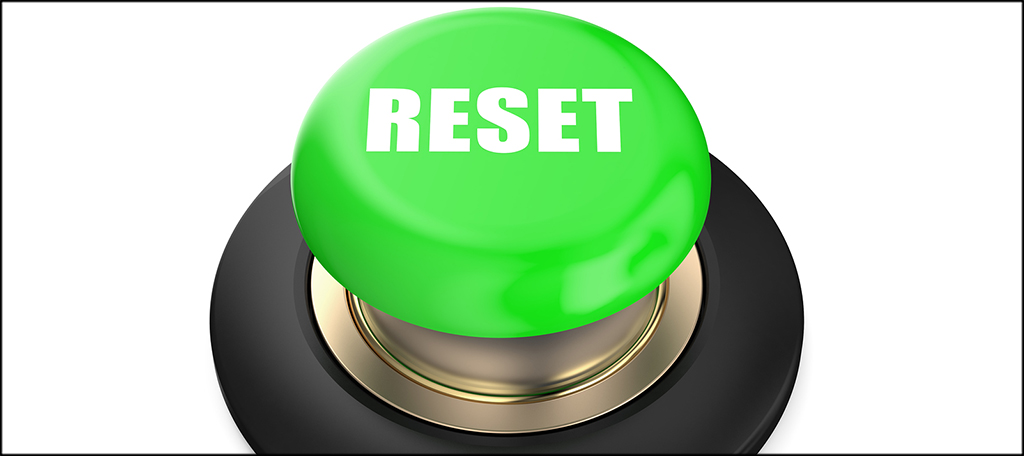If you Google “Are we in a recession?” you may be surprised to see that there seems to be some debate. But if you’ve lost your job or taken a pay cut, you don’t have to ask Google what’s happening. You live with it every day. Most of us will survive the COVID-19 virus. The question is, what’s the best way to survive a recession?
And for those of us with an online presence, “Is my website really a necessary expense right now?” If your website is your business and livelihood, there’s not much question about maintaining it.
Of course you will. But what about websites that are personal in nature, hobby sites, or other nonessential sites?
Let’s talk about some ways we might adapt and weigh the pros and cons of keeping your website alive.
But First, a Word From Our Sponsor
Before we get started, allow me to address the elephant in the room. I work in the web hosting industry, and you’re reading this article on a web host’s blog. And I’m about to recommend that you hold on to your website during a recession, which means holding on to your web hosting account.
So I understand if you’re skeptical or suspicious that this may be little more than a self-serving pep talk—a mercenary corporate ploy to keep our business moving forward during difficult times.
Hey, I would have the same suspicions and expectations.
But what prompted me to write this article is 25 years of experience in the hosting industry. More specifically, my experiences during the last two economic contractions we have lived through. The first being the “dot com bubble” bursting in 2000, the second being the economic recession of 2008.
The year 2000 was not exactly what you’d call a banner year for web companies. Only 48% of online companies survived the dot com bubble burst to make it to 2004. Then in 2008, there was a lot of justifiable fear about the economic future, so many people simply stopped spending.
Not surprisingly, when it came to planning their budgets, paying for a website did not top most people’s lists. While the relatively new big cloud companies continued to grow, smaller independent hosts felt the pinch.
The hosting company I worked for at the time never fully recovered, and many others failed to survive the recession and closed shop for good.
Pretty bleak, right?
But then something interesting happened.
Return and Begin Again

After each of the downturns, many people who had given up their personal or hobby websites returned to us. They toughed it out, were able to survive the recession, and wanted to get back online. To pick up where they left off.
That was good news for everyone involved, but some problems became clear pretty quickly.
When most people walked away from their websites, they really walked away. They didn’t keep files. They didn’t renew domain names. So when they wanted to come back, they were forced to start from scratch.
Some were able to re-register their domain names and scrape up old website file backups. But most had nothing, and they came to us asking if we could help.
It was a tough position to be in. I can tell you one thing about most of the people who work in this industry – we want to help our customers. And even people who aren’t (yet!) our customers.
But when you’re faced with a website that’s more or less disappeared, options are limited.
I watched a lot of people spend a lot of money reestablishing their online presence. But thinking back on it now, it didn’t have to be that way.
The Cost of Maintaining vs. Starting Over

To be clear, not everyone came back. Some never will. But I have to believe that many who did return had regrets about abandoning their websites in the first place.
Not nostalgic regret, but financial regret.
Re-acquiring a lost domain name can be a costly proposition all on its own. But that cost can pale in comparison to what it takes to rebuild a website.
Think about the time you’ve invested in your current site. Especially if you’re like me and insist on doing everything yourself. I’ll admit to spending days on things that I could have paid someone to do in a couple of hours. On more than one occasion. Okay, on a lot more than one occasion.
That’s a major investment. You can always get more money, but you can’t get more time.
Take a minute to do a little calculation. Estimate how much time you’ve spent building and maintaining your website. It’s an eye-opening exercise, and for many of us, an impossible number to define.
Now do some simple multiplication to see what you spend on hosting in a year.
You see where I’m going.
For most of us, the cost of hosting our site is a tiny fraction of the cost of rebuilding it.
There’s a reason I talked about people coming back to hosting a year or two after canceling. It’s because, honestly, it surprised me. I didn’t anticipate so many people feeling compelled to reestablish their online presence.
And I’m pretty sure most of them didn’t anticipate it themselves. But there’s another reason to consider holding on to your website.
Identifying Opportunities Can Help You Survive Recession

So far, I’ve mainly been talking about sites that aren’t necessarily businesses. But the cost of maintaining vs. starting over applies even more to business sites than personal ones.
The problem with many small online businesses is they’re much more sensitive to decreases in spending. A few slow months can erase years of profitability. That’s why many small businesses re-evaluate and consider closing shop when consumer spending dips.
But there’s another option: adapt and thrive.
Successful people have a knack for turning negatives into positives. When everyone around them is expecting the worst, they’re busy scouting new opportunities. It’s a mindset more than a specific action.
But it’s the key to surviving pretty much any setback, downturn, or recession.
If we continue to serve and talk to customers the same way we always have, we’re unlikely to succeed. Too much has changed. They say drastic times call for drastic measures. Well, if these aren’t drastic times, I don’t know what are.
But it may surprise you to learn that the measures necessary to weather the current storm don’t have to be drastic.
As a bonus, changes you make now will result in your business being stronger when the economy bounces back. And who knows, maybe the things you do now will lead to new revenue streams that continue into the future.
So what are some things we can do to not only survive, but thrive?
- Adjust Your Offerings Based on Changes in Customer Needs and Demands
This can apply not only to services, but also to physical products. Talk to your customers to learn their needs, and ask yourself if you can find a way to meet them. When people change the way they spend, they may also change the choices they make. Try to communicate the fact that you’re open to changing with them. - Ramp-Up Customer Communication
Increasing the frequency of communication lets your customers know you’re still there, and it increases their confidence in your business. Work to keep the communication meaningful, and: - Listen to Feedback
Communication is a two-way street, so if you’re talking but not listening to responses, you’re doing it wrong. You must pay attention to what customers, or potential customers, are saying, or your efforts to adapt and survive the recession may fall flat. - Revisit Your FAQ
Most of your potential customers will never contact you. They’ll try to learn what they need to know from your website. So while you’re making adjustments to your offerings or services, don’t forget to update your FAQ. The questions may be different now than they were six months ago. If you don’t have an FAQ on your website, now is the time to add one. - Strengthen Your Game
By that I mean take the time now to improve in areas where you know you may not be strong. If you’ve always wanted to learn how to make infographics, take the time to learn it now. Research ways to make your email communication more effective or how to improve your social media outreach. Figure out how to work that video camera you bought two years ago. Give yourself every advantage you can. - Focus on What You Can Do Now
When your business is feeling an economic squeeze, focus your efforts on things that can make an immediate difference. Spending an afternoon working on your TED talk isn’t going to help you sell any cookies today. (Especially if you haven’t actually been invited to give a TED talk. Yet.) Evaluate your to-do list and prioritize those items that have a direct impact on sales. - Remember Your Long-Term Goals
This may seem to contradict point number six, but you can’t turn your back on planning for the future. Your goals for 2020 may have fallen by the wayside, but 2020—and the pandemic—are going to end. Don’t work hard to survive a recession only to be unprepared for what comes when it ends. - Nurture Your Positivity
I mentioned that successful people often have a different mindset. That mindset is almost always centered around positivity. A belief that you’re capable of making positive things happen. Even if you’re a naturally pessimistic person, you can still learn to steer your thoughts toward the positive. Look for positives in negative situations. Don’t let yourself blow small problems out of proportion. A positive attitude can turn an idea that’s “just okay” into a huge success.
You Can Survive a Recession With Your Web Presence Intact
All things must pass. That includes our current pandemic and its fallout. What we consider to be “normal” may change, but there’s no reason the new normal can’t be an improvement. Maintain your positive outlook, remain adaptable, and don’t let your web hosting expire! 😉

